Dominic Steavu
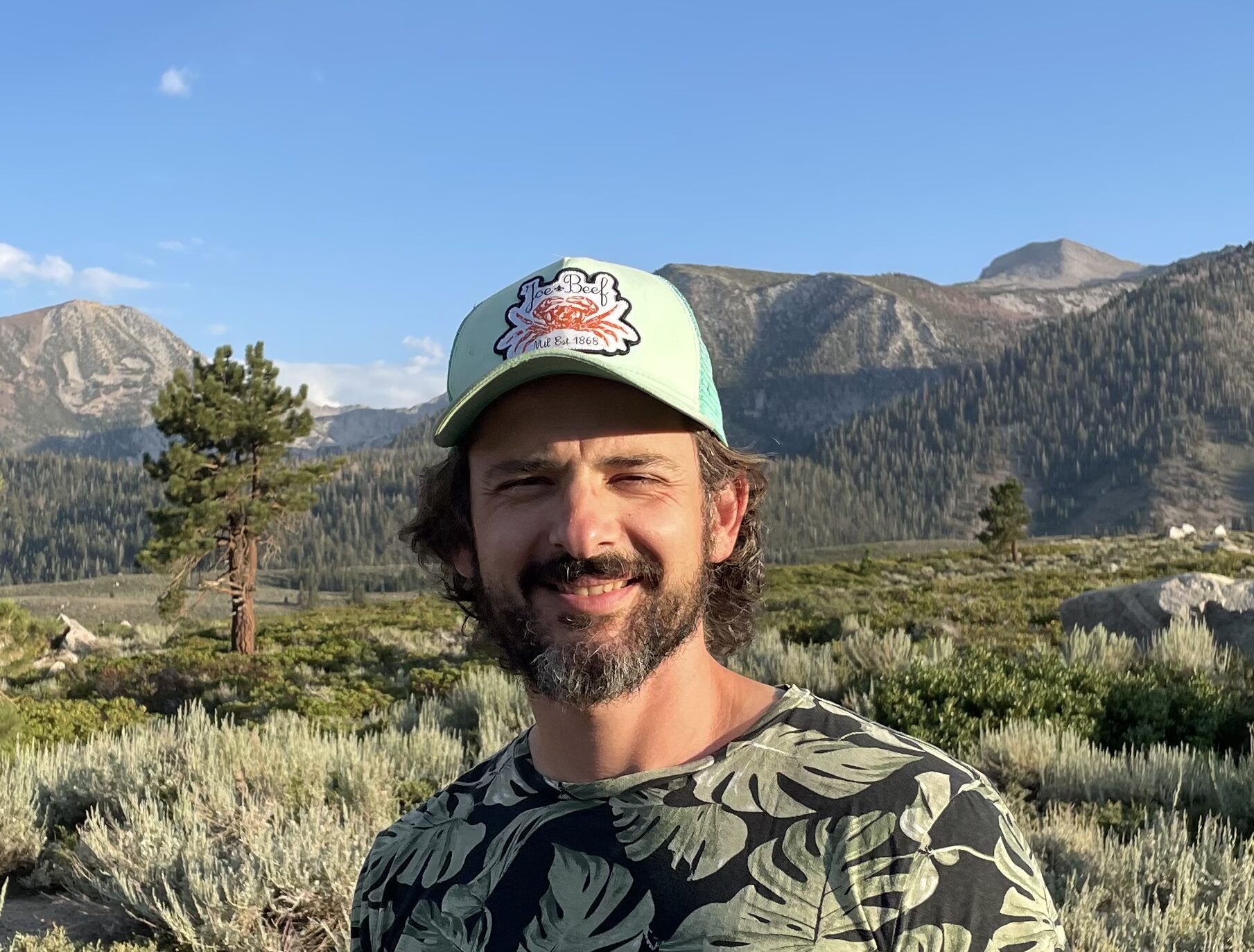 Dominic Steavu
Dominic SteavuStanford (MA, PhD), Harvard (MA), McGill (BA)
Associate Professor
Specialization: Daoism and Chinese Buddhism
Email:dominicsteavubalint@ucsb.edu
My area of specialization is the history of Daoism and Chinese Buddhism, with a focus on the history of medicine. Broadly speaking, I am interested in how trends in material culture and intellectual history were reflected in the practices of various Daoist and Buddhist traditions. More pointedly, I aim to uncover the ways in which therapeutic or bio-spiritual disciplines intersect with external or material conditions or shaped by sociopolitical contexts, cultural trends, medical discoveries, etc., in other words, how “interior” spaces (such as the notional; the imaginal; the spiritual) reflect “external” ones, or vice versa. In this capacity, some of my work thus far has looked at the body, talismans, elixirs, cosmographs (divination boards), or mushrooms.
More recently, as an extension of my interest in the relationship between ideas and their embodiments, I have been looking at utopian narratives or idealized representations and their relationship to material realities. In this context, I am completing a critical annotated translation of The Incapable Master (Wunengzi), a utopian medieval Daoist treatise on political philosophy that also supplies the sprouts of an original Daoist environmental ethic.
I am also working on a project that examines the role of entheogens (primarily mushrooms and cannabis) in ritual contexts, often in connection with visualization practices.
Other research interests that I am developing into large projects include:
- Tattooing in China and Japan at the crossroads of medicine and religion
- Ethnomycology
- Daoist and Buddhist imprints in medieval Chinese translations of Christian texts; Christian (largely Jesuit) receptions of Daoist and Buddhist self-cultivation practices in early modern Europe
- Daoist and Buddhist meditation
Research Fields
- Daoist Studies
- Buddhist Studies
- History of Ideas/Intellectual History
- History of Medicine
- World/Global History
- Material Culture
Publications
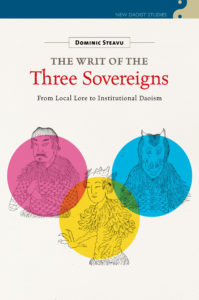
The Writ of the Three Sovereigns: From Local Lore to Institutional Daoism. New Daoist Studies 1. Honolulu HI: University of Hawaii Press, Hong Kong: The Chinese University Press, 2019.
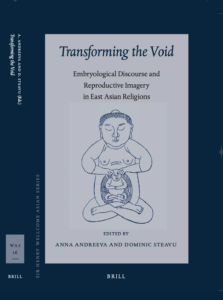
Transforming the Void: Embryological Discourse and Reproductive Symbolism in East Asian Religions. Co-editor, with Anna Andreeva. Leiden: Sir Henry Wellcome Asian Series, Brill (2016).
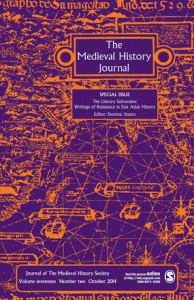
Medieval History Journal 17.2 (October 2014)
Special issue on “The Literary Subversive: Writings of Resistance in East Asian History.” Guest editor and contributor
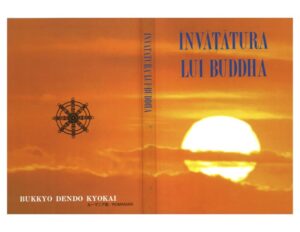
Învățătura lui Buddha [The Teaching of the Buddha]. Tokyo: Numata Foundation, Bukkyō dendō kyōkai, 2020. Editor, revised Romanian edition.
Selected Articles
- “Did Daoists Do Drugs? On the Uses of (Psychoactive) Mushrooms in Daoism”
- “Prophecy in Daoism” co-authored with Vincent Goossaert. In Philip Clart and Matthias Schumann, eds. Divination in Chinese Religions. [approx. 70 pages]. Leiden: EJ Brill, [forthcoming 2024].
- “Is There Such a Thing as Chinese Yoga? Indian Postural Therapies in Medieval China.” Journal of Yoga Studies 4 (2023): 375–412.
- “Birds of a Feather Bathe Together: Buddhist Consecration Rituals in Medieval China and their Relation to Daoism.” In Fabio Rambelli and Or Porath, eds., Rituals of Initiation and Consecration in Premodern Japan: Power and Legitimacy in Kingship, Religion, and the Arts, 61–83, Berlin: DeGruyter, 2022.
- “Paratextuality, Materiality, and Corporeality in Medieval Chinese Religions: Talismans (fu) and Diagrams (tu).” Journal of Medieval Worlds 1.4 (2019): 11–40.
- “Orthodoxie et pluralisme dans la médecine chinoise.” Études chinoises 36.2 (2017) [2018]: 45–81.
- “The Marvelous Fungus and The Secret of Divine Immortals.” Micrologus 26 (2018): 353–383.
- “The Allegorical Cosmos: The Shi 式 Board in Medieval Taoist and Buddhist Sources.” In Michael Lackner, ed., Coping with the Future: Theories and Practices of Divination in East Asia, 196–232. Leiden: E. J. Brill, 2018.
- “Apotropaic Substances as Medicine in Buddhist Healing Methods: Nāgārjuna’s Treatise on the Five Sciences.” In Pierce Salguero, ed. Buddhism and Healing in East Asia, 441–453. New York: Columbia University Press, 2017.
- “Buddhism, Medicine, and the Affairs of the Heart: Potency Therapy (Vājīkarana) and the Reappraisal of Aphrodisiacs and Love Philters in Medieval Chinese Sources,” East Asian Science, Technology, and Medicine (EASTM) 45 (2017): 9–48.
- “Cosmos, Body, and Meditation in Early Medieval Taoism.” In Anna Andreeva and Dominic Steavu, eds., Transforming the Void: Embryological and Reproductive Symbolism in East Asian Religions, 111–146. Leiden: Sir Henry Wellcome Asian Series, Brill, 2016.
- “Backdrops and Parallels to Embryological Discourse and Reproductive Imagery in East Asian Religions.” Co-authored with Anna Andreeva. In Anna Andreeva and Dominic Steavu, eds., Transforming the Void: Embryological and Reproductive Symbolism in East Asian Religions, 1–50. Leiden: Sir Henry Wellcome Asian Series, Brill, 2016.
- “Delocalizing Illness: Healing and the State in Chinese Magical Medicine.” In Helene Basu and William Sax, eds., The Law of Possession: Ritual, Therapy, and the Secular State, 82–113. Oxford: Oxford University Press, 2015.
- “Cosmogony and the Origin of Inequality. A Utopian Perspective from the Wunengzi.” Special issue on “The Literary Subversive: Writings of Resistance in East Asian History,” Medieval History Journal 17.2 (2014): 295–335.
- “A Brief Overview of the Role of Intellectuals in Resistance.” Special issue on “The Literary Subversive: Writings of Resistance in East Asian History,” Medieval History Journal 17.2 (2014): 195–206.
- “The Many Lives of Lord Wang of the Western Citadel: A Note on the Transmission of the Sanhuang wen (Writ of the Three Sovereigns),” Journal of the International College for Postgraduate Buddhist Studies 13 (March 2009): 109–161.
Courses Taught
- Introduction to East Asian Culture (Premodern) [EACS 4A]
- Introduction to Buddhism [EACS/RGST 4]
- Introduction to Chinese Buddhism [EACS/RGST 23]
- Self, Society, and Nature in Chinese Thought [CHN/RGST 48]
- Classical Chinese I [CHN 101A]
- Classical Chinese II [CHN 101B]
- Western Misrepresentations of Asia [EACS/RGST 109A]
- Judaism, Christianity, and Islam in China [EACS/RGST 109B]
- Introduction to Daoism [EACS 147/RGST 147T]
- Science and Medicine in Buddhism and Daoism [EACS/RGST 162]
- Sex, Drugs, and Meditation in Daoism and Buddhism [CHN/RS 163A]
- Religious Literature in China: Daoist Texts (Seminar) [CHN/RS 260]
- Religious Literature in China: Buddhist Texts (Seminar) [CHN/RS 266F]
To Prospective Students:
I am currently accepting graduate students. Applicants to the PhD program (in Religious Studies or East Asian Languages and Cultural Studies) who are interested in working with me as a primary advisor are expected to have completed at least:
1) one full year or the equivalent of Classical Chinese.
2) two full years of training or the equivalent in modern Chinese (or Japanese).
3) requirements to meet Professional Working Proficiency standards in English.
4) some coursework attesting to a basic familiarity with disciplinary theories and methods.
If accepted, in conjunction with or in addition to basic program requirements, students will be expected to:
1) actively develop their Classical Chinese translation skills.
2) acquire reading proficiency in a second Classical Language e.g.: Sanskrit, Persian, Latin, Uyghur or other Turkic languages, Sogdian, Tocharian, Arabic, Pali, Tibetan, Manchu, Mongolian, or Japanese; I strongly encourage comparative work and emphasize
drawing on sources from multiple linguistic traditions.
3) actively develop/maintain their Chinese (or Japanese) reading skills.
4) acquire reading proficiency in a second East Asian research language (Chinese or Japanese).
5) acquire reading proficiency in a second European research language (French, German, or Italian).
6) actively develop their knowledge of relevant theories and methods.
7) register for and attend my annual graduate seminar until ABD.
